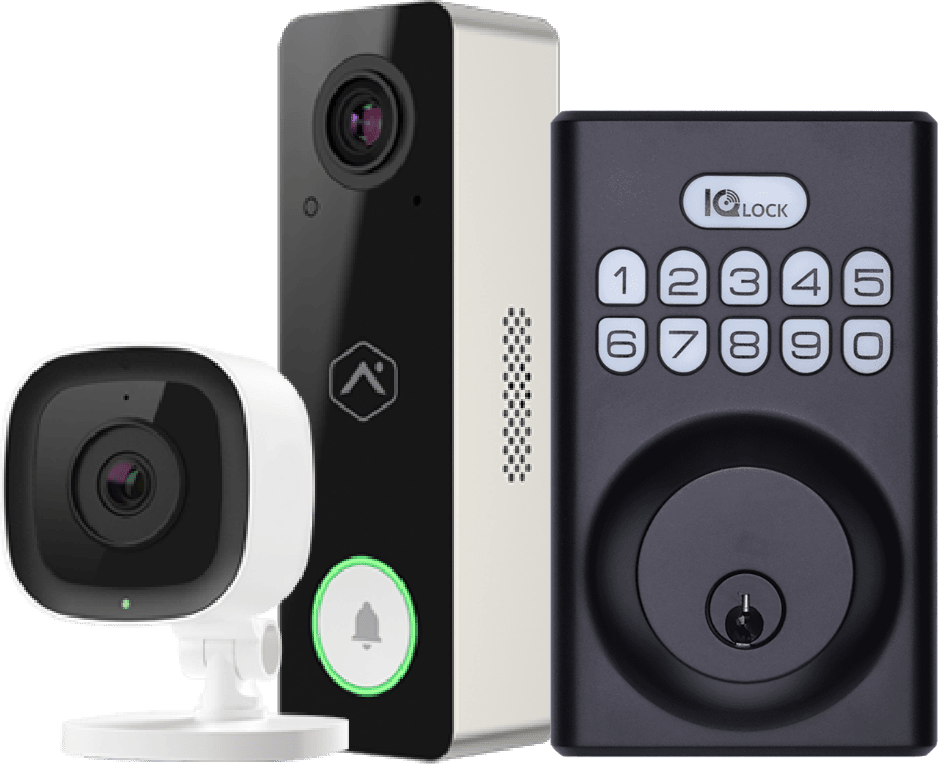Protect Your Identity and Avoid these Common Scams

Protect your Identity is very important! When considering your home's security and family's safety, don't overlook the threat of online, telemarketing, and door-to-door scams. Sadly, identity theft cost Americans $10 billion more in 2014 than all other property crimes,* and the most common ID theft was the unauthorized misuse or attempted misuse of an account.
Know These Common Warning Signs of a Scam
The best way to avoid being the victim of theft and protecting your contracts, accounts, and home is to know the common scam tactics used, such as:
- The person wants personal or financial information – A common scam is a made-up email from a bank, asking you to click on a link to confirm details and your password. Ignore this type of email and call your bank instead.
- Pressure – Scammers will often put pressure on you and urge you to pay immediately or lose the opportunity. An ethical business will never pressure you or use scare tactics.
- Offers that seem too good to be true – Examples include money left to you from an unknown relative, being awarded a loan you haven't applied for, winning a lottery you've never entered, and being selected to receive funds in return for using your bank account.
- Spelling or grammar errors – Scammers are not always well educated or may not know English. If the correspondence has errors, be suspicious.
- Requests for fees – Scammers often tell you that they need advance payments or fees as part of their offer or to release money to you.
- Suspicious address – If the person won't give you an address, it's likely a scam. If there is an address, confirm it using the Internet or Better Business Bureau.
- Request for access to your computer – A common scam is someone claiming to be a technician who has detected problems with your computer and can fix them for free.
- Untraceable payment method – Scammers prefer payment methods that are difficult to trace, such as cash or money transfer services.
- You've won a "free" gift or prize, but you have to pay for "postage & handling" or other fees.
- You must act now. You can't afford to miss this "high-profit, no-risk" offer.
- You must give a credit card or bank account number, or have a check picked up by courier.
- You do not need to check with anyone, including your family, lawyer, accountant, Better Business Bureau, or consumer protection agency.
- You don't need any written information about their company or references.
- Never click on links or attachments in emails if you're unsure what it is or if the email – even from a friend – is vague or suspicious. If you believe action is required, call your provider using a number you have, or visit the company's website for information.
- If you receive an inquiry about personal and financial details by email or phone, it is probably a "phishing" attempt. Never give personal or account information to someone who calls or emails you, asking for details.
- Shred or securely dispose of documents that contain personal data or account numbers.
- Keep photocopies of your credit cards (front and back) in a secure place. Use the copies to contact your provider and freeze your account if a card is lost or stolen.
- Choose strong passwords, with as many digits as permitted and a variety of characters. Use a different password for all accounts. Also, don't allow an Internet browser to "remember" your password.
- Protect your income tax returns. Use only reputable income tax preparation companies before providing your personal and financial data.
- Don't allow just anyone to perform banking transactions for you. If you must rely on someone, ensure the caregiver or agency is bonded and reputable.
- Review accounts and credit reports for suspicious activity. You're entitled to a free report every year from each of the national credit bureaus – Equifax, Experian, and TransUnion. Order yours at AnnualCreditReport.com. If you find anything wrong, notify the bureau and the source (store, bank, credit card provider). Also, closely monitor your credit card and bank statements or choose a provider that will alert you to potential issues.
- Review the latest news on internet security from reputable, consumer sources.
- Check if your home security company offers a free identity theft protection service that sends proactive alerts of potential identity theft issues and offers help recovering your identity.
- Tell you that your service provider is no longer in business, no longer serves your area, or was sold to their company.
- Ask you to sign a new contract to ensure your service continues.
- Ask for access to your security system or say it has been recalled and requires replacement.
- Show you false documents and insist they need access to your home or security system.
- Because burglars often enter a home through the front door, review our tips for staying safe when strangers knock.
- Do not allow anyone access to equipment in your home without an appointment.
- Call your service provider to confirm they have sent a representative.
- Always obtain a salesperson's name, business license number, and contact information.
- Take time to check the details before signing a contract. You might end up being billed twice for the same services you already receive.
- Be sure to report suspicious activity to the local police or sheriff. Or, if someone claiming to represent your security company seems questionable, call your home security provider.
- Consider starting a neighborhood watch group
- If your home alarm system includes video surveillance, use your security cameras to monitor activity, such as people going door to door, looking for easy entry and checking who's home.
